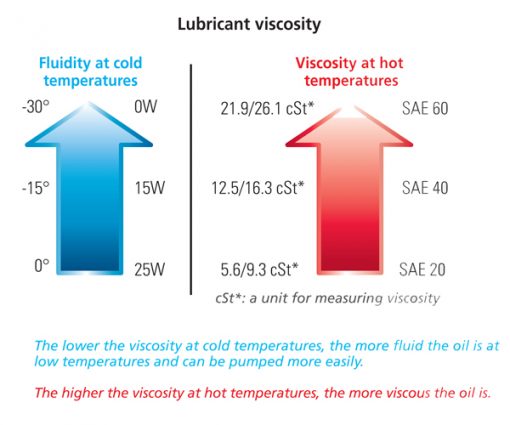Choosing the Right Engine Oil
Understanding engine oil can be complicated and making the right choice for your vehicle can be time-consuming. In fact, many of us will pick up the first bottle we see without understanding what we are putting into our vehicles. As difficult as it may be, it is incredibly important to choose the right oil as it can have various effects on the running ability and longevity of your engine.
Choosing the right type of engine oil not only increases the life of your engine, but it can also allow your engine to run much more efficiently. This can increase your fuel efficiency lowering your average fuel spend.
But when you go to a shop you will see numerous products with a wide variety of features and symbols. If you don’t understand these terms. The first thing that you must recognise is that the different types of engine oil that are available to you are each designed for specific reasons. Engine oils use various additives, have varying viscosities and classifications. Understanding these factors will allow you to choose the right oil for your vehicle.

Oil additives:
Most lubricating oils are developed with chemical additives that enhance the beneficial properties of the base oil or make up for oil deficiencies. For example, to keep your engine corrosion free, various additives will be added to reduce these effects. For passenger car motor oils, base oil makes up around 70 to 80 percent of the final product, while additives comprise the other 20 to 30 percent.
Additives help lubricants withstand punishing operating environments that engines have to deal with on a daily basis. Even the strongest base oil cannot constantly protect against the effects of heat, corrosion and wear particles solely on their own. To cut a long story short, additives make good performing base oils even better. Additives give these base oils the performance benefits that consumers not only want but demand, such as multi-grade performance, extended drain intervals and performance against extreme pressure.

Viscosity ratings:
Viscosity is essentially an oil’s resistance to flow. It is by far the single most important consideration of the oil as it affects both the wear and tear rate of the engine and its performance in relation to fuel consumption.
For example, a liquid such as water is a low viscosity fluid; while a fluid such as syrup is considered a high viscosity fluid. If we increase the temperature of syrup, the viscosity of it lowers, meaning that it will flow faster.
Viscosity is commonly measured with the Kinematic viscosity and is usually quoted in data sheets at 40°C and 100°C. Kinematic Viscosity measures the resistance of the fluid to flow and shear under the forces of gravity, or how easy the oil flows to the different parts of the engine.
Single-viscosity oil and multi-grade oil are the two types of engine oil available on the market today. Almost every vehicle can run on a multi-viscosity oil. The lower the number, the thinner the oil and the more easily it flows. In 10W-40 oil, for example, the two numbers mean that it’s a multi-viscosity oil. The 10W refers to how the oil flows at low temperatures (in winter); 40 refers to how it flows at high temperatures.
Viscosity index improvers are additives added to multi-grade oils that resist the thinning that happens in a lubricant once the temperature increases. As the temperature increases, these additives stretch out, increasing the fluids internal friction and causing the fluid to flow at a slower speed, raising the viscosity.

Finol provides the go-to app in choosing your engine oil. Go to the Finol Which Oil App choose your vehicle and fill in your details. Within seconds you will be brought to the best oil for your vehicle. Our full product range can be viewed here or you can contact one of our specialised team members by clicking here.

